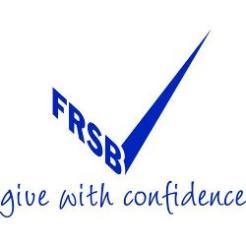The Fundraising Standards Board “needs to consider more innovative approaches” to its self-regulatory role, the review of fundraising self-regulation has recommended.
The findings of the review, carried out by the professional services firm PwC and published today, include a number of recommendations aimed at clarifying and strengthening the roles and responsibilities of the three bodies involved in self-regulation: the FRSB, the Public Fundraising Regulatory Association and the Institute of Fundraising.
The report, which is not being published in full, says the bodies must consider a power to expel and penalise repeat offenders from the whole self-regulation system.
The FRSB launched an auditing programme last year to investigate charities with high levels of self-reported complaints.
But the review recommended that the body needs to go further, saying: “FRBS needs to be proactive in its self-regulatory role. Limited auditing procedures are beginning to be phased in. FRSB needs to consider some more innovative approaches.”
It says the FRSB should consider performing a “Code compliance review” on new members to find any areas where they are not meeting the requirements. The charity would then have to undertake IoF training before they are accepted as a member, it said.
Commissioned by the three bodies last summer, with funding from the Office for Civil Society, the report recommends that the FRSB should “enhance" its current auditing role, continue to produce its complaints report and adjudicate on unresolved complaints against the Code of Fundraising Practice.
It says the “completeness” of complaints reporting to the FRSB, which publishes an annual complaints report, should be improved “so members have confidence in the data”.
Alistair McLean, chief executive of the FRSB, told Civil Society News: “We informed the sector about our auditing work last year and that we were moving away from a self-certification model. We’ll be building on the work we’ve already begun.
“We go back to member charities to do benchmarking against their sector peers to demonstrate any areas where they might need to improve. We are also reaching out to charities who report they have no complaints to make sure they are recording the information accurately and correctly.
“It will be building on that to demonstrate to the public there is rigour around the way we work.”
The report also recommended that the bodies set up an online portal, run by the FRSB as the public-facing regulatory organisation, to provide one point of contact for members of the public and others interested in fundraising self-regulation.
“This would reduce the potential for public and charity confusion over roles and responsibilities,” the report says.
It is hoped the site will be up and running by the financial year 2015/16.
The report also recommended that the activities of the IoF and the FRSB remain mostly unchanged, but the PFRA should become more aligned to the IoF.









